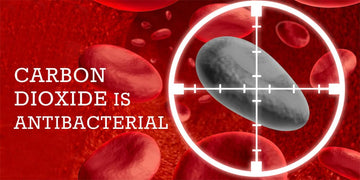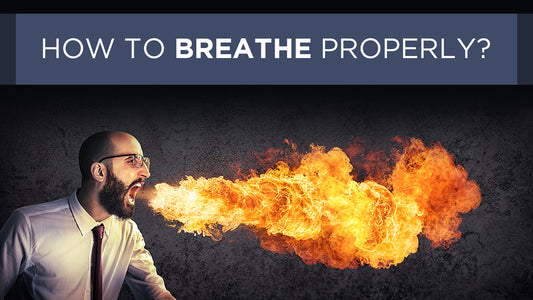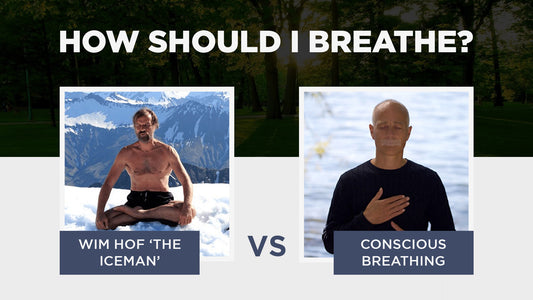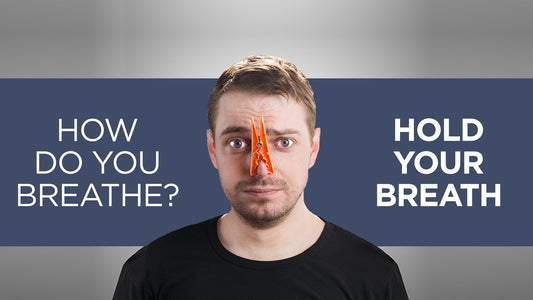
Relationship between osteoporosis and over breathing
Calcium is an important ingredient in eggshells, and one problem that egg producers struggle with is that the eggshells become thin and break easily, especially during the summer months when it is hot. One research group found that the problem was caused by hyperventilation. When the temperature in the barn rises in the summer, the hens will increase their breathing frequency to get rid of some of the excess heat.
Much like dogs who pant after a walk because they cannot sweat but need to get rid of excess heat, chickens get rid of the excess heat via exhalation. When the hens in the study (see below) were given carbonated water instead of plain water, the eggshells hardened. The difference was significant.
Hyperventilation causes thinner eggshells in hens
So why does carbonated water harden eggshells? Carbonated beverages contain carbonic acid, and carbonic acid, in turn, contains carbon dioxide. In the cells of the egg laying hen, as well as in us humans, carbon dioxide is constantly produced, and upon exhalation some of the carbon dioxide that is built up leaves the body.
Hyperventilation or over-breathing means that breathing exceeds the need, which will cause a lack of carbon dioxide. This deficiency, in turn, will give rise to increased pH in the blood, which will affect the oxygenation adversely. Oxygen travels around in the blood bound to hemoglobin. Carbon dioxide has the ability to kick away oxygen from the blood (this is called the Haldane effect).
The higher the pH the harder the hemoglobin adheres to the oxygen, while at a low pH the hemoglobin will change shape and release the oxygen so that it can enter the cells and be beneficial (this is called the Bohr effect).
More calcium disappears with the urine in the case of hyperventilation
Because carbon dioxide lowers the pH, a lack of carbon dioxide will give a high pH and, consequently, the oxygen will just travel around in the blood, tightly bound to the hemoglobin, and we will just exhale the oxygen again. If the over-breathing continues, the body will have to compensate to try to lower the pH of the blood to restore good oxygenation.
One such compensation mechanism is that the kidneys begin to secrete more bicarbonate with the urine. But in this process, the bicarbonate also takes with it a mineral, for example calcium, which can be detrimental to the body. By drinking carbonated water, the increasing amount of carbon dioxide creates a balanced pH that causes less bicarbonate and calcium to disappear with the urine.
99 % of our calcium is in the skeleton
In the human body, calcium is the most abundant mineral. It is an important component of the skeleton as 99 % of the calcium of the body is in the skeleton. Here, it works with phosphorus to make the bone structure strong.
Lack of calcium makes your skeleton weaker, and you will get bone fractures easier. The most common are fractures in the wrists, hips, vertebrae or upper arms. Brittle-bone disease, which is also commonly called osteoporosis, is most common in women.
I do not, however, recommend replenishing carbon dioxide by drinking carbonated water as the hens in the study did. The best thing is to slow down your breathing to prevent carbon dioxide from leaving the body in excessive amounts. Physical activity has a positive effect, too, as it increases the production of carbon dioxide in your body.
The optimal way to build up carbon dioxide is by physical activity while breathing in and out through your nose, as nasal breathing automatically reduces the outflow of carbon dioxide.
| Studie visar på samband mellan värme, överandning och kvalité på äggskal | |
|---|---|
| Titel | The Effects of Drinking Carbonated Water on the Egg Shell Quality of Single Comb White Leghorn Hens Exposed to High Environmental Temperature |
| Tidskrift | Poultry Science Volume 64, Issue 3Pp. 594-596 |
| Författare | T. W. Odomi, P. C. Harrisson och M. J. Darrez |
| Sammanfattning | Hens receiving carbonated water as their water source had higher egg production when averaged across the experimental periods, and in Period 1 (23 C) this increase in egg production was significant (P<.05). Increasing the chamber temperature from 23 to 35 C produced a decrease in egg weight after a more pronounced decline in percent egg shell and egg specific gravity in both water treatment groups. During the period of elevated environmental temperature (35 C), the birds drinking the carbonated water had a significant (P<.01) relief from the reduction in egg shell quality as a result of a delay in time for the decline to occur. These data indicate that the use of carbonated drinking water during periods of hot weather can help relieve the associated problem of high environmental temperature-induced egg shell thinning. |
ell thinning.






